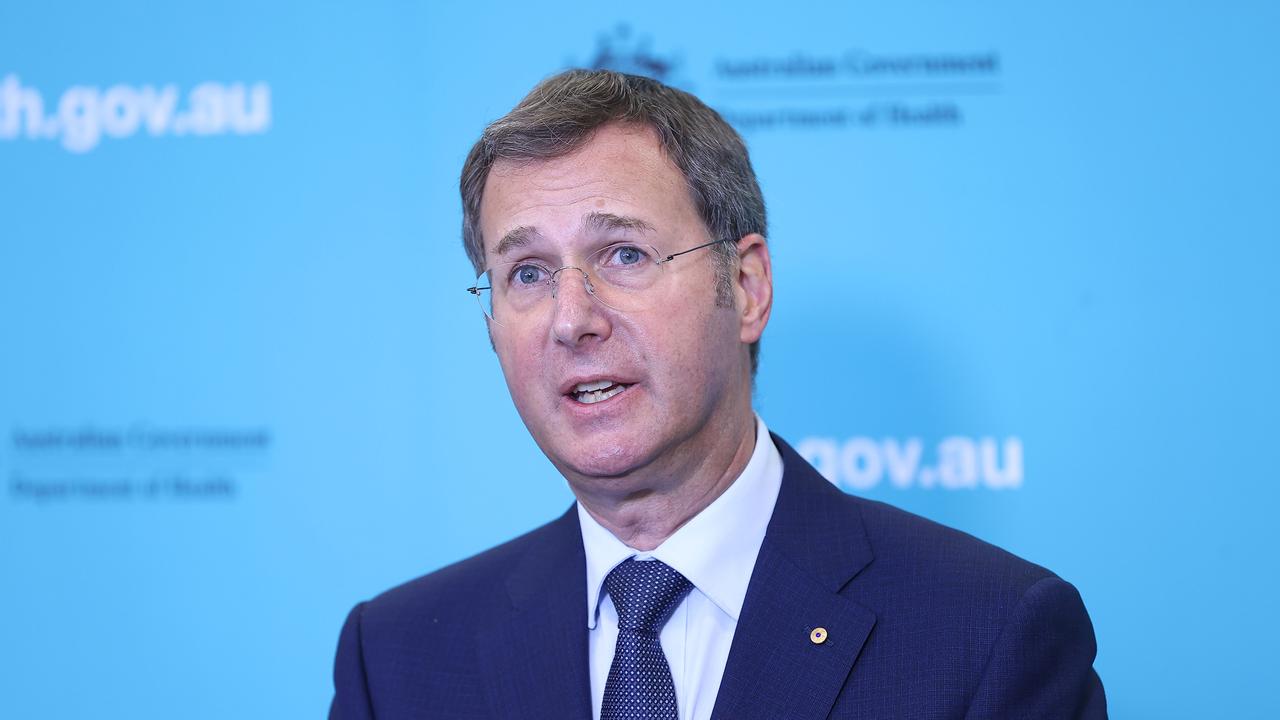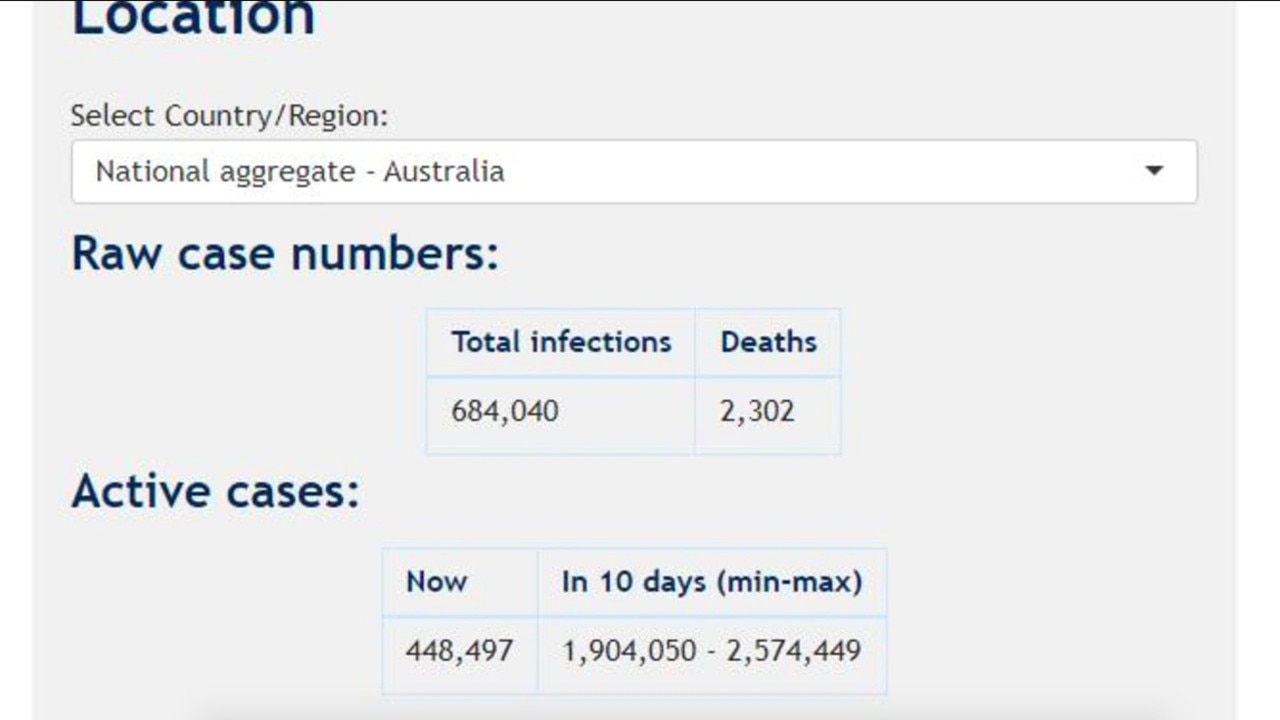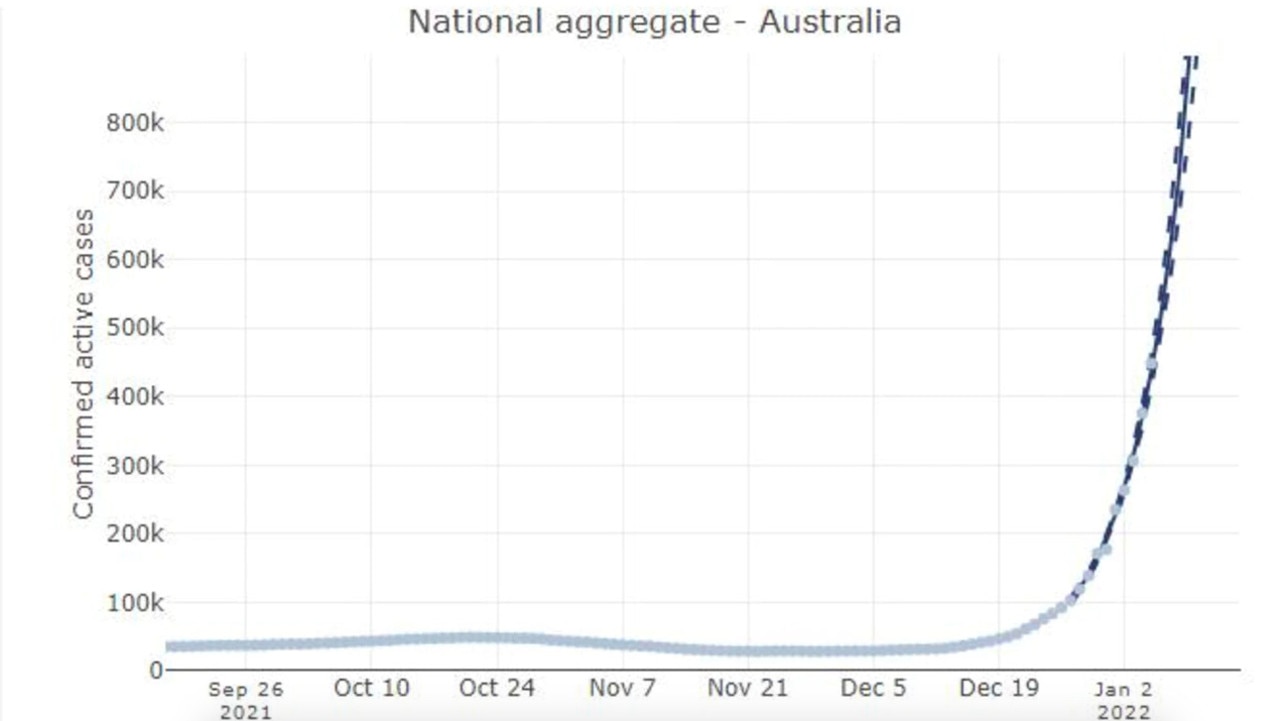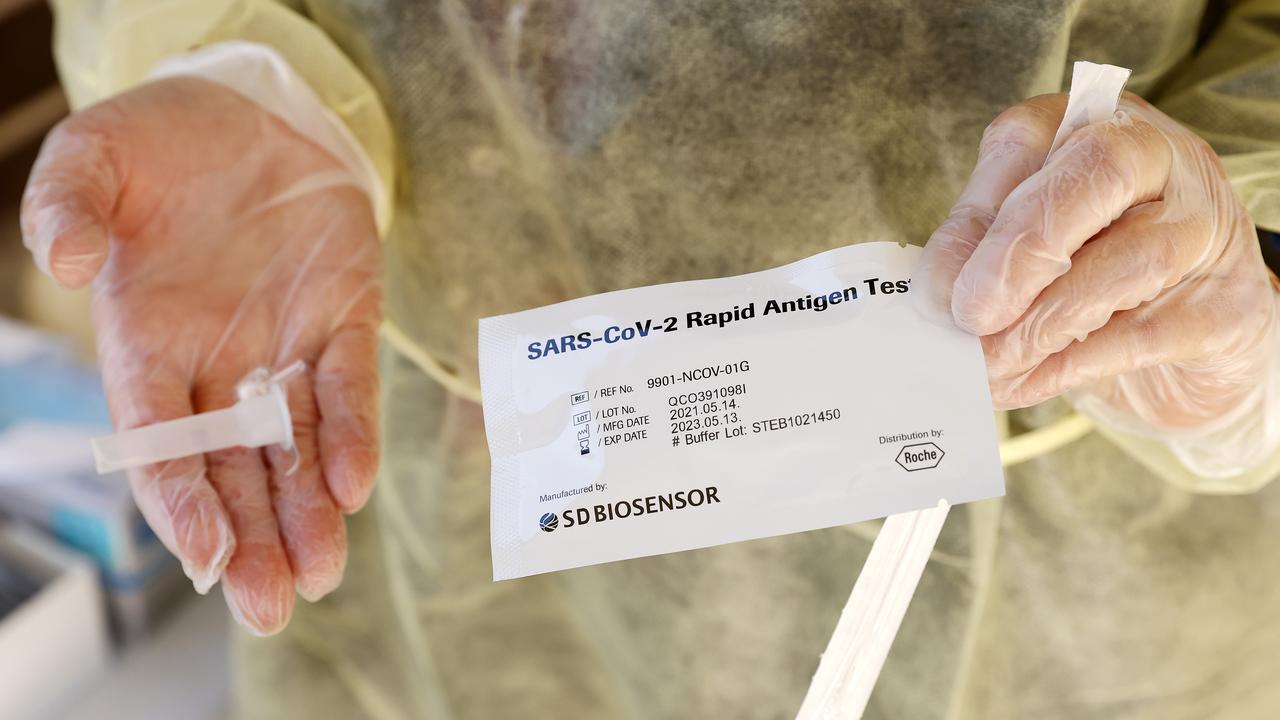Australians warned ‘many of us’ will get Covid-19 in coming days, weeks
Australians have been warned to prepare themselves for the likelihood they’ll soon be infected with Covid-19, as a massive case spike looms over the coming weeks.
Australians have been warned to prepare themselves for the likely event they’ll soon be infected with Covid-19, as a massive case spike looms over the coming weeks.
In an update today, deputy chief medical officer Michael Kidd said it was likely many Australians would test positive in the coming days and weeks as case numbers continued to surge.
“With the rising case numbers we’ve seen over the past week in many parts of the country, it’s likely that many of us will test positive for Covid-19 over the coming days and weeks if we haven’t already done so,” Professor Kidd said.
Health experts and officials have increasingly suggested the actual case numbers across the nation are magnitudes higher than currently reported, as demand for both PCR and rapid antigen test kits continue to stretch the country’s resources.
University of Melbourne epidemiologist and public health medicine specialist Tony Blakely estimated last week that Australia’s Covid-19 infections could be as much as five to 10 times higher than the current daily confirmed cases.
Speaking to The Sydney Morning Herald, Professor Blakely said if the confirmed infections reached 50,000 a day, the real figure would likely be between 250,000 and 500,000 actual infections each day.
Cases per day are now almost double that, with the combined numbers from each state and territory now pushing 100,000 every 24 hours.

“It’s only going to take about three weeks at those sorts of numbers before 40, 50, 60 per cent of the population has been infected, and the virus will run out of steam,” he said.
According to modelling from the University of Melbourne, we’re now hurtling towards a collective active caseload of almost two million Covid infections — almost one in 13 people — and that’s at the low end of the estimate.
It is, of course, important to note the modelling is also based on previous strains where it was estimated it would take several weeks for an infection to clear.
With Omicron in particular, which is the more dominant strain in Australia now, the time it takes for an infection to clear is understood to be a lot shorter.
This means that many of the “active cases” mentioned in the modelling would have already recovered from Omicron and the real number of active cases would be considerably lower.
Federal Health Minister Greg Hunt told reporters today it was “heartening” to see Omicron was milder than previous strains of the disease, pointing to only 76 people who were on ventilation across the country.
Despite a significant increase in new cases, Mr Hunt said the strain was “significantly less severe”.
On the flipside, though, there is also understood to be a high level of undetected spread, particularly in NSW, at the present moment — which the University of Melbourne modelling doesn’t take into consideration as it’s based on official figures recorded via PCR.


The degree of that spread has been made somewhat clearer over the weekend, as Victoria and now Queensland released their first daily case numbers with residents’ self-reported positive RAT results included.
Victoria’s cases jumped to 44,155 — 22,051 of which were picked up on a rapid antigen test — and four deaths today, while in the Sunshine State, there were 18,000 new infections — 4320 of which were detected via RAT.
“We don’t want Victorians to think that the daily transmission has doubled overnight,” Health Minister Martin Foley told reporters.
“The reported figure has significantly spiked based on that week’s worth of unreported figures that we now have captured in the system.
“However, we should not rule out that there are still undiagnosed cases out there in the wider community, particularly as access to rapid antigen tests grows each day as more supply gradually comes online.”
Nevertheless, with Omicron Victoria’s Covid commander Jeroen Weimar said states were seeing “some numbers that frankly we wouldn’t have dreamt of even two or three months ago”.
“It’s a very different type, it moves in a very different way. It has a far higher attack rate … That’s why we’ve made a significant and bold step into the rapid antigen testing space across the whole country,” Mr Weimar said.
“Those tests are starting to come through progressively into the system and it gives us a really good understanding of how people are managing with their symptoms and how to ensure we have access to care.”
During his update, Professor Kidd urged all Australians to be prepared for any potential infections by having paracetamol or ibuprofen at hand to manage fevers and mild aches or pains.

“If infected, many will have no symptoms at all, others may have mild symptoms,” he said.
“You’ll need to drink plenty of fluids which can be water, but you may also benefit from using electrolyte powder or solution.
“It’s important to be prepared, because you won’t be able to go to your supermarket or pharmacy if you’re diagnosed.
“If you are feeling abnormally weak or tired you may have moderate symptoms and need to seek medical advice.”
People who may require further medical assistance managing the infection include the unvaccinated, immunocompromised, those with diabetes, obesity or severe mental illness, as well as other severe, chronic or complex medical conditions including cardiac, respiratory, renal or neurodevelopmental.






